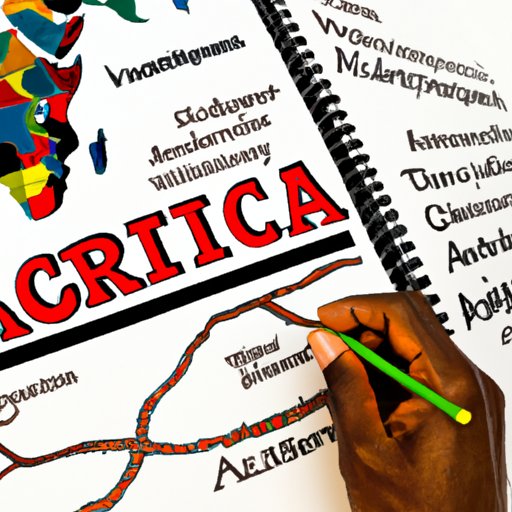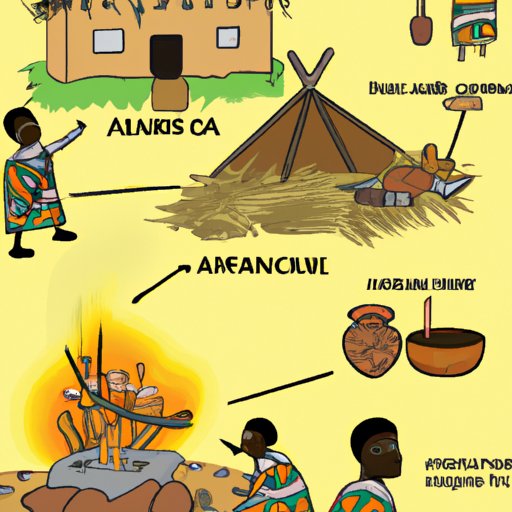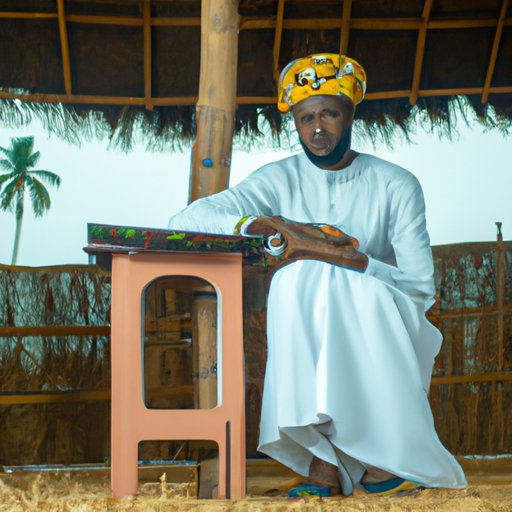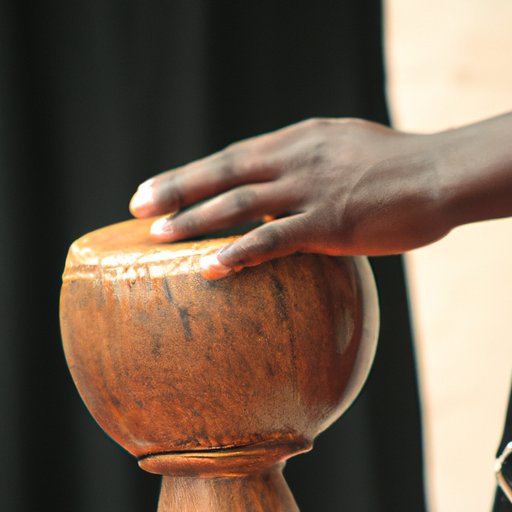Introduction
African culture is a term used to refer to the diverse range of cultural practices and beliefs that are found across the continent of Africa. It includes the customs, traditions, values, and beliefs that have been passed down from generation to generation. This article will explore the origins and traditions of African culture, the role of music, the impact of colonization, the diversity of African languages, and the importance of rituals and religion.

Analyzing the Origins and Traditions of African Culture
African culture has its roots in pre-colonial times, when various tribes and ethnic groups developed their own unique cultures. These cultures were based on a variety of factors, such as geography, environment, and proximity to other tribes. Each tribe or ethnic group had its own set of beliefs, customs, and traditions. These included everything from food preparation techniques to marriage rituals and religious ceremonies. In addition, many African cultures had a strong belief in the power of the spirits and the gods.
Traditional practices were also an important part of African culture. Many tribes practiced animism, which is the belief that everything has a spirit, including animals, plants, and natural elements. They also believed in the power of ancestral spirits, which they believed could influence events in the present and future. Traditional healing methods, such as herbal remedies and spiritual rituals, were also commonly used to treat illnesses and ailments.
Exploring the Role of Music in African Culture
Music has always been an important part of African culture. Music was used to express joy, sorrow, and all the emotions of life. There are many different types of music in Africa, ranging from traditional folk songs to modern pop songs. Music was often used to tell stories, celebrate special occasions, and even to communicate messages between villages.
The role of music in society was very important. It was used to bring people together for celebrations and rituals, to mark important events, and to express feelings and ideas. Music was also used to pass down knowledge and stories from one generation to the next. It was a way of preserving history and identity.

Examining the Impact of Colonization on African Culture
The arrival of European colonists in Africa had a significant impact on African culture. The introduction of new languages, religions, and beliefs changed the way many Africans lived their lives. Many traditional practices were outlawed or discouraged by the colonial powers, while others were adopted and integrated into the new way of life.
Changes in language were particularly prominent. Many African languages were replaced with the languages of the colonists. Similarly, traditional African religions were suppressed in favor of the new religions introduced by the colonists. African art and architecture were also influenced by the new styles and materials brought by the colonists.
A Look at the Diversity of African Languages
Africa is home to a rich and diverse array of languages. Most of these languages belong to four major language families: Afro-Asiatic, Nilo-Saharan, Niger-Congo, and Khoisan. Within these language families, there are hundreds of distinct languages, each with its own unique dialects and accents.
Despite the great diversity of African languages, there are some commonalities among them. For example, many African languages use a system of tonal accentuation in which certain syllables are stressed more than others. This is used to convey meaning and emotion in the spoken word. Additionally, many African languages have similar grammatical structures and vocabulary.
Investigating the Different Forms of Art in African Culture
Art is another important aspect of African culture. Traditional African art includes visual arts such as painting, sculpture, and pottery. Performance arts such as music, dance, and storytelling were also popular. These forms of art were used to communicate stories, celebrate special occasions, and express feelings and ideas.
African art was often symbolic and had deep spiritual or religious meanings. For example, many sculptures and masks were used in religious ceremonies or to invoke the spirits. African art was also used to record and preserve history, as well as to comment on current events.

Understanding the Significance of Rituals in African Culture
Rituals play an important role in African culture. They are used to mark important events, such as births, deaths, and marriages. They are also used to celebrate special occasions, such as the changing of the seasons or the coming of the rains. Rituals can also be used to ask for protection or guidance from the spirits.
Rituals are also important in social events, such as weddings and funerals. They help to unite the community and provide a sense of belonging and solidarity. In addition, rituals are often used to honor ancestors and to celebrate the accomplishments of the living.

Examining the Impact of Religion on African Culture
Religion plays a major role in African culture. Ancestors are revered and believed to be capable of influencing events in the present and future. Supernatural beliefs, such as witchcraft and sorcery, are also widely accepted. Many traditional African religions involve the worship of gods and spirits and the use of rituals and ceremonies to honor them.
Religion is also closely intertwined with other aspects of African culture, such as music, art, and language. For example, religious symbols and themes are often found in traditional African art, while religious songs and chants are commonly used in ceremonies and rituals.
Conclusion
This article has explored the various aspects of African culture, including its origins and traditions, the role of music, the impact of colonization, the diversity of African languages, and the importance of rituals and religion. African culture is rich and varied, and it continues to evolve and adapt to the changing world around it. Despite the changes that have taken place over time, the core values and beliefs remain the same, and African culture remains a source of pride and inspiration for many people.
(Note: Is this article not meeting your expectations? Do you have knowledge or insights to share? Unlock new opportunities and expand your reach by joining our authors team. Click Registration to join us and share your expertise with our readers.)
